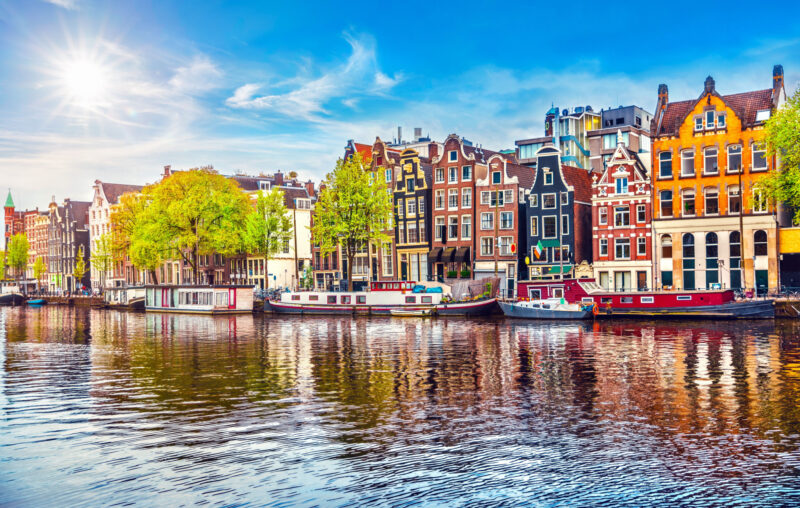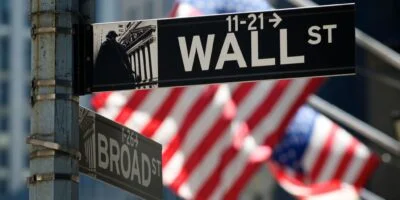The Beginning of the Modern World: It Was Always the Dutch

The Dutch are truly magnificent. Amsterdam had the first stock market, the first proto-central bank, and the first widespread ownership of a publicly traded company (although tradable shares in common ventures had existed before). Their Golden Age spawned some of humanity’s best art, their mastery of the sea is to this day astonishing, and one of the oldest financial contracts still paying interest belongs to a Dutch water company. Clearly, something grand was happening in the early 1600s in the Low Countries.
Deirdre McCloskey, the economic historian who first drew the attention of most libertarians and market-friendly economists to the economic growth wonders of the seven provinces of the Dutch Republic, has spent the last twenty years convincing a broad audience that the origins of the modern world lay precisely here — in some backwater, swampy flat lands of 17th century. through her Bourgeois trilogy and the summarizing Leave Me Alone and I’ll Make You Rich book, co-authored with Art Carden, she’s done more than the countless obscure scholarly articles written on industrialization, the Great Enrichment, or divergences in incomes and resource endowment to explain our modern world.
Again and again, she comes back to the dignity and liberty for merchants and the respect for town-dwellers in the 17th, but especially during the 18th century. “People needed to be persuaded to accept the outcome of innovation,” she wrote in Bourgeois Dignity, a task which Joseph Schumpeter called “a business-respecting civilization.”
That’s much too late, according to two economic historians at Utrecht University in the Netherlands. Maarten Prak and Jan Luiten van Zanden show in their new book Pioneers of Capitalism: The Netherlands 1000-1800 that the Dutch preindustrial history of growth, trade, and reliance on markets for their daily bread changed well before the mid-1600s. Only occasionally in her writing does McCloskey backdate the process to begin in 1517 — the Dutch Revolt against the Spanish — a turning point that Prak and van Zanden also identify as a crucial change in the capitalist development of the Low Countries.
But already before the Dutch revolt, half the population were wage laborers. Contrary to Marx and his followers’ views on capitalism as class warfare, though, their establishment among the Dutch seemed to have come about not by greedy capitalists enclosing the commons and forcing the proletariat into wage slavery, but as “the result of a relatively peaceful transition, in which people more or less voluntarily became dependent on the market”:
[C]apitalism appears to have originated in a society that was relatively egalitarian, with a strong and continually developing civil society that was characterized by a balance between bottom-up influences and top-down institutions. It was not an orgy of violence, as Marx maintained, a forceful expropriation of the means of production by the newly emerging capitalist class, that gave birth to capitalism.
Prak and Van Zanden admit that the agricultural crisis in the 1300s caused by peat and water infringement meant that farmers could no longer eke out a suitable livelihood on crops alone, and therefore “dared to put their fate in the hands of the market.”
The authors do agree with McCloskey that the emergence of the modern world is a North Sea region phenomenon rather than a shift from the Dutch Republic to Britain during the late 1600s or early 1700s. The shift in GDP per capita that scholars have identified in Britain around the mid-1600s as the beginning of the Industrial Revolution, where structurally upward-sloping growth replaced stagnant and trendless previous developments, occurred centuries earlier in Holland. For as far back as Prak and van Zanden can marshal data (~1300s), the Dutch trendline is upward. Thus, the modern world began here — not with England’s enclosures or the dark satanic mills of Lancashire.
From there, the widespread tolerance and respect for city-dwellers that McCloskey so painstakingly identifies emerge naturally: “The tolerance of the Dutch (for which they would later become famous) that arose during this period had, therefore, also a materialistic basis: one had to respect the beliefs of the merchants with whom one regularly did business.” The doux commerce thesis is in full display: “[A]lmost every merchant traded with someone who held different religious beliefs. It was, therefore, virtually impossible for large trading cities to enforce religious uniformity.”
The (im)migration that, for instance, Johan Norberg greatly emphasized in Open: The Story of Human Progress, is visible here too. European morals and sensitivity in the 1600s were a patchwork of crisscrossing ideals, meaning that innovators and Enlightenment thinkers who ruffled the feathers of a local ruler one too many times could find refuge elsewhere, where “their particular heresies” were tolerated. The Dutch Republic generally, and Amsterdam specifically were common destinations for a brain-drain of innovators from elsewhere: merchants from the south, bakers from Germany, Portuguese and Spanish Jews. The synergy between old, tolerant Holland and its newcomers “led to numerous new initiatives in an astonishingly short period of time [which] helps explain the economic boom of the early Golden Age.”
A lot of common stories also break down in the early modern Dutch Republic. Feudalism, while not entirely extractive and backwards, seems to have contributed to growth in the southern Dutch lands where it was practiced, leaving the free Dutch north without feudalism to lag behind the west and south. Colonialism and slavery, too, were held somewhat hypocritically; slavery was never quite tolerated in the home country (even to the point of slaves sometimes being brought to the mainland by their masters and released) but widely practiced in the Dutch colonies. And the very same individuals who at home practiced trade, enjoyed inclusive growth, and had no slaves, displayed very different values in the colonies which were characterized by extractive institutions and slave-based plantations.
The “benefit” of empire and colonies, too, is unclear: Arbitraging spice prices ensured the Dutch East India Company bumper profits in the first few decades before competition eroded its rents, and then the military expenses of this public-private behemoth surely overran any feasible economic gains extracted.
Neither was the onset of capitalism among the Dutch a disaster for equality. Unequal wages or wealth didn’t increase as much as they could have or that capitalism’s opponents routinely suggest. Inclusive institutions remained: “Inequality did increase, but by much less than would be expected on the basis of an ‘extractive’ development path.”
In total, the early capitalist example of the Dutch wasn’t mainly connected to the Reformation or Protestantism. Dutch capitalism is hundreds of years older: “[T]he market economy in combination with large-scale wage labor was emerging as early as the fourteenth and fifteenth centuries, thus long before the Reformation.” Prak and van Zanden show that “capitalism in tandem with republicanism had brought about numerous changes, but that those changes did not necessarily lead to an erosion of civil society, nor to a deterioration in the living conditions of ordinary people.” Capitalism, the word, we may concede has its problems; but the thing, process, or system it denotes is another matter altogether.










